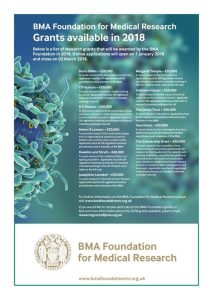FMS PUBLICATIONS advice April 2017
Dear colleagues
David Burn and John Simpson have asked me to resend the attached document.
The subtext is that one area in which Newcastle appears to underachieve is in publication metrics. This has consequences to both our rankings but also our funding – because certain funders perform bibliometric searches as part of their awards process. This is particularly true of NIHR.
However, to a significant extent our underachievement reflects relatively simple errors:
- NIHR will look for Newcastle upon Tyne Hospitals as an affiliation, because they fund via the NHS. Therefore it is critical that anyone with an association with NUTH uses this as part of their affiliation, in addition to Newcastle University. If you don’t your publications could well be omitted from bibliometric searches and therefore metrics.
- Secondly, the BRC funds a significant amount of Faculty infrastructure. Therefore, even if you don’t directly receive a grant from the BRC, your research will be supported by the BRC in some way. Therefore you should acknowledge the BRC in the relevant section for the vast majority of your work. The official paragraph for acknowledgements (as stipulated to us by the NIHR) is:
‘The Research was supported/funded by the National Institute for Health Research Newcastle Biomedical Research Centre based at Newcastle Hospitals NHS Foundation Trust and Newcastle University. The views expressed are those of the author(s) and not necessarily those of the NHS, the NIHR or the Department of Health’.
Where possible can you use the full phrase above however I do accept that this is very long-winded and there is not always space in all Journals particularly when multiple funders have had to be acknowledged so if this is the case it seems common sense shortening to:
‘The Research was supported/funded by NIHR Newcastle Biomedical Research Centre’.
Something else you might consider is to use the BRC as your affiliation:
A.B. somebody. NIHR Newcastle Biomedical Research Centre based at Newcastle upon Tyne Hospitals NHS Trust and Newcastle University, Newcastle upon Tyne, UK.
If you do this it is still good to acknowledge BRC – but I now use the above as a ‘failsafe’. If you don’t acknowledge the BRC in some way then your publications may be missed in bibliometric searches and WILL NOT COUNT in the metrics for BRC renewal – and the competition is becoming so tough that this could mean losing our BRC status, which would be extremely serious.
You will hear more about this – it is very important and Faculty will continue to circulate the message until compliance is 100%. Institute Directors have also been asked to look at this as a PDR metric, starting this year.
Thanks for reading, and for complying!
Best wishes, John
Professor of Clinical Rheumatology and Director, Institute of Cellular Medicine
Newcastle University
Framlington Place
Newcastle upon Tyne NE2 4HH

